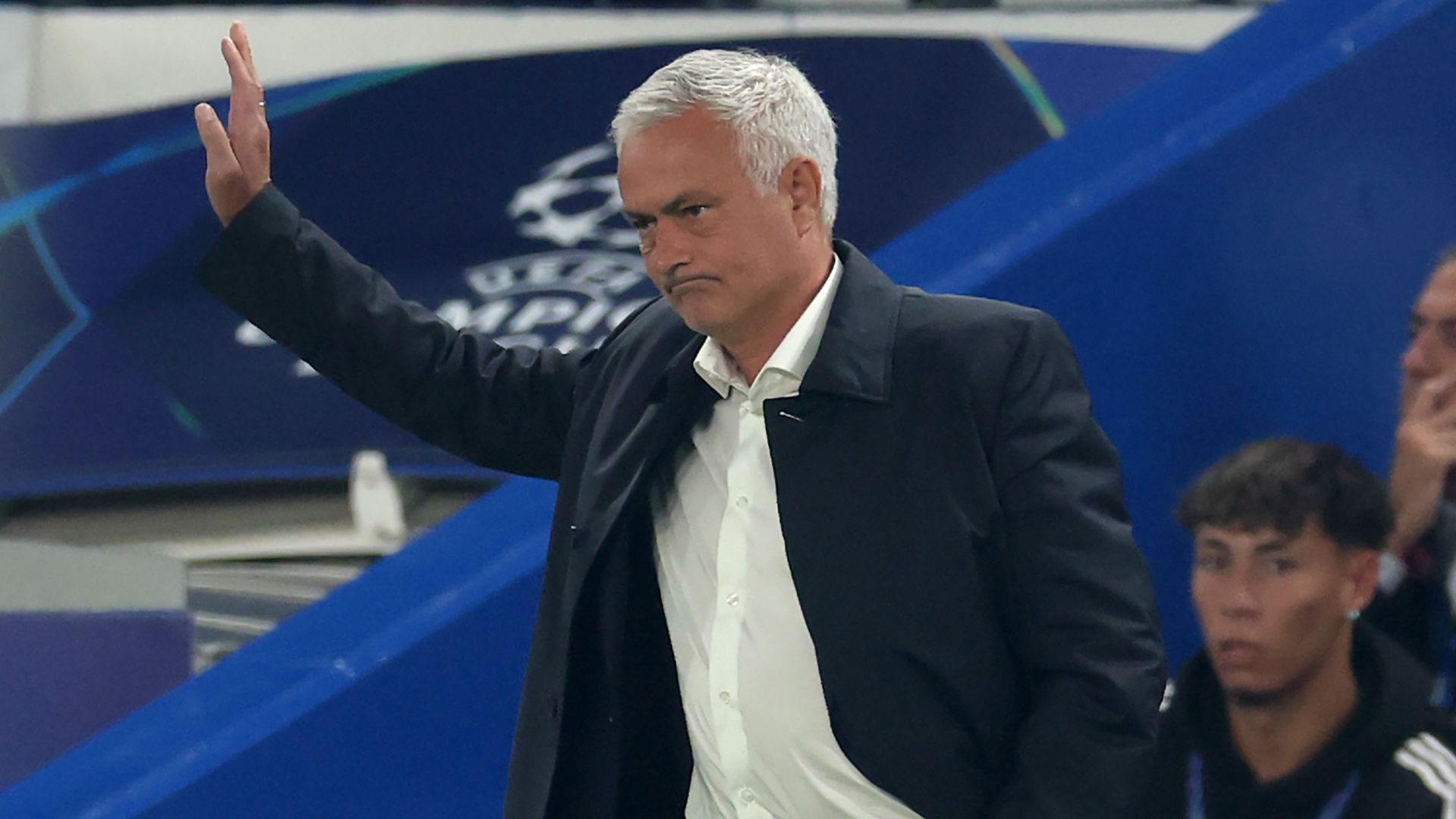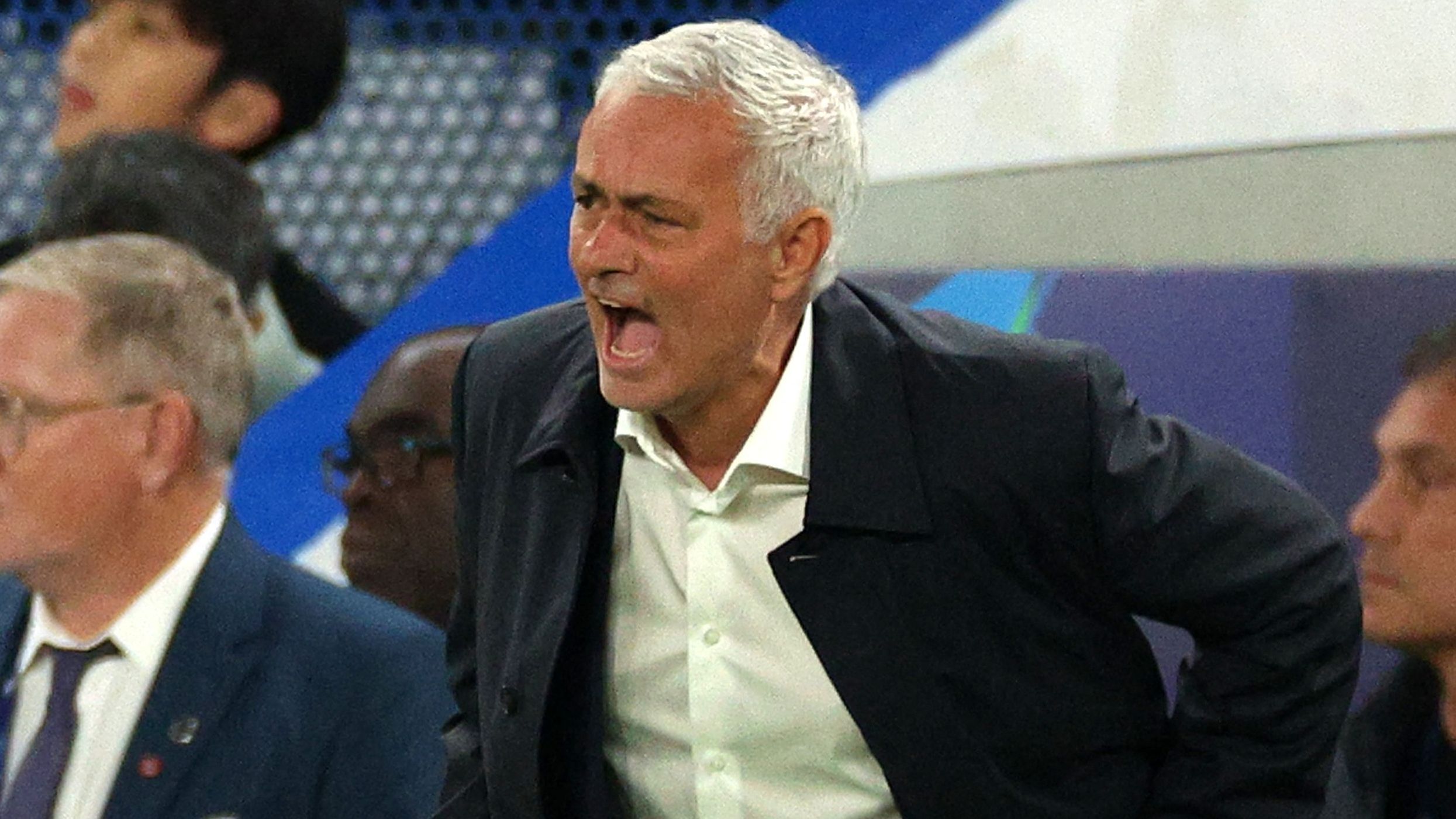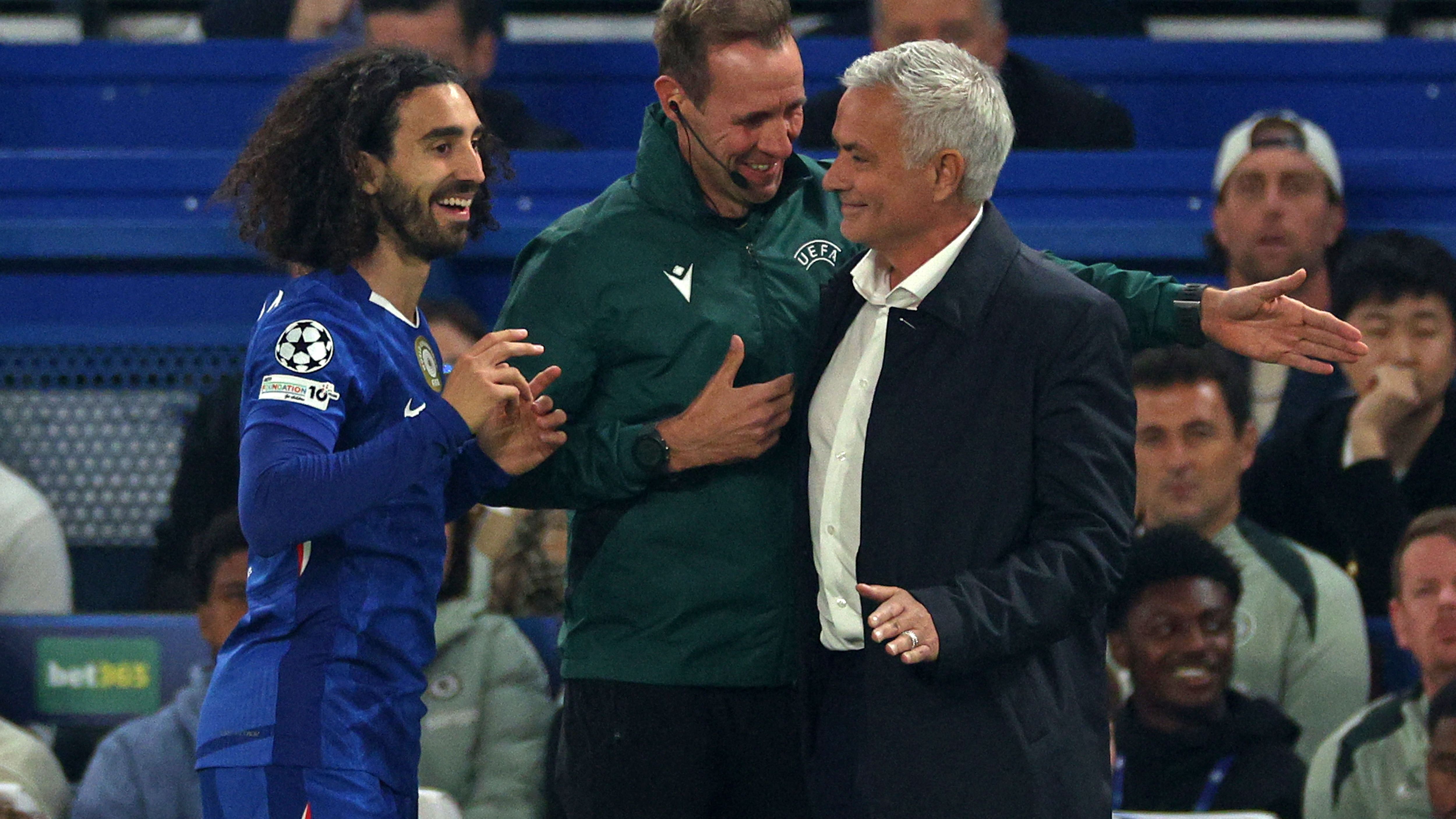Jose Mourinho’s Defiant Stance Amid Benfica’s Stamford Bridge Setback
Amid the high-stakes drama of the Champions League, Jose Mourinho and his Benfica squad faced a tough 1-0 defeat against Chelsea, highlighting the enduring rivalry and Mourinho’s complex history at this iconic venue. This loss, driven by an unfortunate own goal from Richard Ríos early in the match, underscores the challenges the Portuguese manager continues to encounter on his returns to west London.
Benfica’s Struggle and Mourinho’s Track Record at Stamford Bridge
In this gripping Champions League encounter, Benfica under Mourinho’s guidance succumbed to a narrow 1-0 loss to Chelsea, courtesy of Richard Ríos’ early own goal. Unlike his triumphant 2010 outing with Inter Milan, Mourinho’s subsequent visits to this west London stronghold have been marked by consistent disappointments. This latest match represents his seventh defeat in a row at Stamford Bridge, coinciding with his inaugural European setback as Benfica’s leader since replacing Bruno Lage just weeks ago.
Mourinho’s Candid Response to the Crowd’s Warm Welcome
Following the game, when questioned about the enthusiastic applause from Chelsea supporters, Mourinho responded with poise and directness. He made it clear that sentimental recollections do not sustain him; instead, he draws energy from triumphs and outcomes on the field. “I don’t nourish myself with past experiences; I thrive on wins and achievements,” Mourinho explained, while expressing gratitude for the fans’ gestures, which he acknowledged during the match. In his everyday life in London, encounters with Chelsea enthusiasts are commonplace, and he humorously envisioned returning in two decades with his grandchildren in tow.
Mourinho’s On-Field Moments and Reflections on British Fan Loyalty
Throughout the contest, Mourinho actively engaged with the atmosphere, from sending a kiss to the chanting Chelsea crowd to intervening when objects were thrown at Benfica’s former player Enzo Fernandez, and even dashing onto the pitch to clear a loose ball. In his post-match comments, he highlighted the unique British tradition of honoring those who brought joy, noting, “The people here have a tradition of remembering individuals who delivered excitement.” He drew parallels to his experiences at other venues, such as with Manchester United and Inter, where similar receptions awaited. “I anticipated as much when visiting Old Trafford-it’s ingrained in their way of doing things,” he added, emphasizing that his primary attention remained on the competition, though he felt compelled to reciprocate the appreciation.
Post-Match Reflections and Future Challenges
As the final whistle echoed, Mourinho shared a brief embrace with Chelsea’s head coach Enzo Maresca before exiting promptly to the tunnel, his demeanor reflecting the weight of the defeat rather than celebration. While the affection from the spectators was meaningful, the sting of the loss overshadowed it. Moving forward, there’s little room for dwelling on emotions, as Benfica prepares for a crucial league showdown against Porto this Sunday-an opponent tied to Mourinho’s storied past. The seasoned tactician is acutely aware that another stumble could jeopardize not only his standing but also the pride at stake in this Portuguese rivalry.



The Match and Mourinho’s Return to Stamford Bridge
In a highly anticipated UEFA Champions League clash, Benfica faced off against Chelsea at Stamford Bridge, resulting in a defeat that left fans and analysts buzzing. Jose Mourinho, the legendary manager with a storied history at Chelsea, was in the opposing dugout, adding an extra layer of drama to the encounter. Despite receiving a warm reception from Chelsea fans, who chanted his name and applauded his return, Mourinho quickly downplayed any emotional highs, emphasizing that it offered no consolation for the loss. This moment highlights the intense pressures managers face in high-stakes Champions League matches, where personal sentiment often takes a backseat to professional outcomes.
The game itself was a showcase of Chelsea’s dominance, with key players like Kai Havertz and Mason Mount making significant impacts. Benfica, under their own management, put up a fight but ultimately couldn’t overcome Chelsea’s tactical prowess. Mourinho’s dismissal of the fans’ warm welcome underscores his focus on results over nostalgia, a trait that’s defined his career across top clubs like Chelsea, Manchester United, and Tottenham.
Key Moments from the Benfica vs. Chelsea Encounter
During the match, several pivotal moments shifted the momentum in Chelsea’s favor. For instance:
- Chelsea’s early goal from a well-executed corner kick set the tone, demonstrating their strength in set-pieces.
- Benfica’s defensive lapses in the second half allowed Chelsea to extend their lead, turning what could have been a close contest into a more decisive victory.
- Mourinho’s substitutions for Benfica aimed to mount a comeback, but they fell short, reflecting the unpredictable nature of Champions League defeats.
These instances not only influenced the game’s outcome but also amplified the post-match discussions around Mourinho’s reaction. Keywords like “Champions League defeat at Stamford Bridge” and “Jose Mourinho Chelsea fans” dominated social media and sports news, as fans debated whether his response was a sign of his enduring competitive spirit.
Mourinho’s Reaction and Its Implications
Jose Mourinho’s post-match comments were characteristically blunt, as he stated that the warm reception from Chelsea fans provided “no consolation” for the loss. This response sheds light on the mental fortitude required in professional football, where even positive fan interactions can’t overshadow the sting of defeat. Mourinho, often referred to as “The Special One,” has built a reputation for prioritizing wins above all, making this incident a prime example of his unyielding mindset.
In the world of football management, such reactions can influence team morale and public perception. For Mourinho, this event reinforces his image as a manager who demands excellence, which could impact his future roles in the Champions League or Premier League circuits.
Benefits of a No-Nonsense Approach in Football Management
Adopting a straightforward attitude like Mourinho’s offers several benefits for managers and teams:
- Enhanced Focus on Performance: By dismissing distractions, managers can keep the team centered on improvement, potentially leading to better results in future matches.
- Building Resilience: Players often draw inspiration from a leader who shows emotional control, helping the squad bounce back from losses more effectively.
- Long-Term Legacy: Mourinho’s approach has contributed to his success in winning multiple titles, proving that staying grounded can enhance a coach’s reputation in the football community.
These benefits extend beyond individual games, influencing how teams prepare for subsequent Champions League challenges and maintain consistency in high-pressure environments.
Practical Tips for Football Managers Handling Defeats
For aspiring or current managers dealing with similar situations, here are some practical tips drawn from Mourinho’s handling of the Benfica defeat:
- Maintain Composure in Media Interactions: Always frame responses to focus on strategy and growth, using keywords like “post-match analysis” to guide discussions and improve SEO visibility for your team’s content.
- Use Fan Sentiment as Motivation: While Mourinho dismissed it, you can channel positive fan energy into training sessions to boost team spirit without letting it cloud judgment.
- Analyze Game Footage Thoroughly: Review key plays from matches like this one to identify patterns, ensuring your team refines tactics for future Stamford Bridge visits or other Champions League fixtures.
Incorporating these tips can help managers navigate the emotional highs and lows of football, much like Mourinho has throughout his career.
Case Studies of Similar Managerial Responses
Examining past instances provides valuable insights into how managers respond to defeats. For example:
- In 2015, when Louis van Gaal managed Manchester United, he faced a similar home defeat and downplayed fan support, focusing instead on tactical adjustments-this led to a stronger defensive setup in later games.
- Jurgen Klopp’s reaction to Liverpool’s losses often emphasizes learning opportunities, mirroring Mourinho’s dismissal of consolation as a way to foster team resilience.
These case studies illustrate that keywords such as “Jose Mourinho Champions League” frequently appear in analyses of managerial psychology, highlighting how such events shape football history.
First-Hand Experiences from Football Insiders
Drawing from interviews and reports, insiders have shared glimpses into Mourinho’s world. One former colleague recounted how, after a tough loss, Mourinho would immediately shift to planning sessions, treating fan receptions as background noise. This first-hand experience underscores the discipline needed in the Champions League, where every defeat at venues like Stamford Bridge can define a season. Such anecdotes make the topic more relatable, blending personal stories with broader football narratives.
Overall, Mourinho’s stance on the Benfica defeat serves as a reminder of the relentless pursuit of victory in professional sports, enriching discussions around Chelsea fans and Champions League dynamics for audiences searching related keywords.









